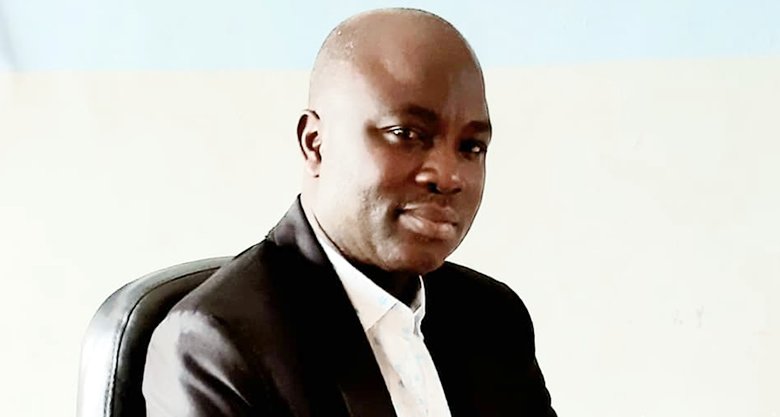
Last week, we started discussing the concept of double negatives, using a statement by acclaimed musician, Tuface Idibia, as our reference point. He had said in a post, ‘I don’t want no sympathy’ instead of the version with the normal structure, ‘I’m not looking for no sympathy.’ We then sought to establish such double negation as the use of two negative terms within a clause. The fact is that although the Tuface’s statement is allowed in such an informal context, it is not suitable for formal texts. Today we shall conclude the discussion, particularly considering a category of double negation that is acceptable on all occasions.
Remember, these are examples of double negatives:
I don’t have no money.
I didn’t see nobody there.
I won’t vote for nobody.
Jude doesn’t love nobody.
She won’t just trust no one.
In defence of double negatives?
In other words, we seem to be out to defend double negatives today. The reason is that it is not every time that they are wrong even in formal settings. So, there is an exception to the rule. This concerns the type that has to do with adjectives, often used when one wants to be diplomatic with the message. I believe you are likely to have used or encountered such one time or the other:
It was not unexpected that the insurgency would linger this much based on the way the government started the fight.
Most nights, it is not uncommon to see call girls parading Allen Street.
There is a play on language (with the adjectives unexpected and uncommon) in ‘It was not unexpected that’ (meaning it was expected) as well as ‘it is not uncommon (it is common)’. This is an acceptable game. Interestingly, such statements are usually included in one of the sections of the objective paper of the West African Secondary School Certificate Examination and other related exams. This is the segment in which candidates are to identify the options that best interpret the given sentences. Consider this:
It was not unexpected that the Super Eagles would crash out of the World Cup qualifiers based on their untidy preparation for the games. This means that
- The Super Eagles prepared well for the competition but they failed to qualify.
- The Super Eagles did not prepare well for the competition but they managed to qualify.
- The Super Eagles did not prepare well for the competition and they eventually failed to qualify.
- The Super Eagles did not participate in the qualifiers.
This is how standard this category of double negatives can be – to the extent that it is tested in the international examination. For you to unravel such a question, you should pay attention to the meanings of both sides of the statement. It is either that something happened because the other one did not; or something did not happen because the other did. In this case, ‘It was not unexpected’ means that it was expected the Eagles would lose, further suggesting that the team did not prepare well. Also, it is sure that they crashed out, meaning they failed to qualify. It is the addition or correlation of both meanings that would provide the correct answer: The Super Eagles did not prepare well for the competition and they eventually failed to qualify (option c).
Other uses of double negatives
It may be a little dangerous to emphasise the ‘advantages’ of double negatives but it ironically has its informal use too, apart from what we have established under standard negation. As can be seen in the Tuface’s case, double negation seems to be useful in indicating emphasis – showing how serious the speaker or writer is about the issue he is condemning or supporting. This suggests that when Tuface says ‘I don’t want no sympathy’, he is simply dead serious about his position.
Secondly, double negation has the capacity to be trendy and humorous. As a result, some musicians, comedians and other creative folks at times use it. Here is an example from comedian Groucho Marx:
I cannot say I do not disagree with you.
Examples of double negatives from lyrics:
I wasn’t looking for nobody when you looked my way – From ‘Don’t Stop the music’ by Rihanna
I can’t get no satisfaction – From ‘Satisfaction’ by The Rolling Stones
I can’t get no sleep – From ‘Insomnia’ by Faithless
Get nothing to hide no more – From ‘Shape of my Heart’ by Blackstreet Boys
Be careful, still
Yet, this does not mean a blind promotion of the style. As I have noted, while it may not be questioned in informal settings and some dialects/languages, it should not be indiscriminately imported into formal English.
For instance, in writing an application letter or other formal ones, official reports or memos, or when you need to defend a proposal, you should stick to the single-negative style. It does not matter whether the medium is digital or offline. I don’t, for instance, expect someone filling a form, say as part of a visa or scholarship application, to write:
I don’t have no plan to stay beyond four years.
Or, in an application letter for the post of a secretary:
It is not unlikely that I do well as a Secretary in your organisation.
These are surely a wiser way of speaking in the contexts:
I have no plan to stay beyond four years.
I will do well as a Secretary in your organisation.




